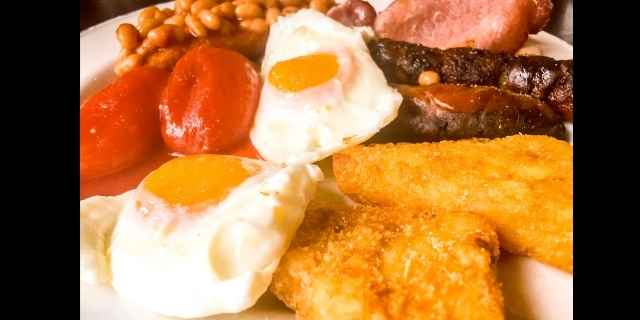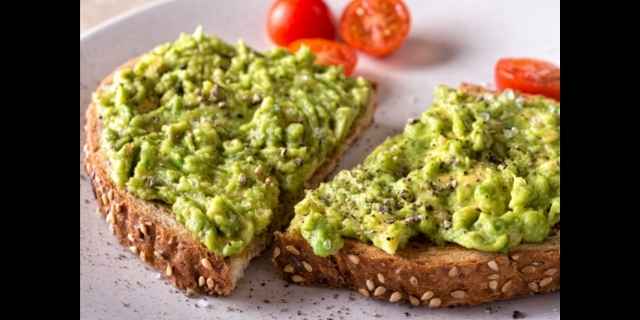Breakfast is a vital part of how rugby players fuel their bodies for the day. So what do elite rugby players eat for breakfast?
There will be some differences between players depending on their positions and size. Breakfasts will also differ depending on whether it’s a training day or a match day. So, let’s get into this in detail.
Different Diets For Different Players

Elite players treat food as fuel as opposed to something that’s purely for enjoyment or just to feel full.
Players are trying to eat food that will keep them lean and strong. They also want to derive enough energy to get through grueling training sessions and tough physical matches.
Because every player’s body is different, elite players have slightly different diets. They also work continuously with club nutritionists and physios to adjust and customize their diets in response to how their bodies are responding.
A player who has trouble keeping lean body mass is going to eat more protein and fat. In contrast, a player who has trouble staying lean is going to keep track of fat and carbs much more strictly.
Carbs, Protein, and Fats
What elite players are not doing is eating a big bowl of sugary breakfast cereal. There’s no doubt that carbs are important as a source of energy. But the simple sugars in typical cereals burn fast and then burn out fast.
This feels like a sharp crash in energy, which is not good.
Instead, players need slow-burning carbs that release steady energy throughout the day.
The speed with which carbs burn is called their glycemic index(GI). Athletes are looking for almost all of their carbs to be low GI for steady, long-burning energy.
What about protein?
Protein is also a requirement because it allows the player to repair and build muscle. Protein can also be converted to energy in a pinch.
Protein is important for the upkeep of the central nervous system and the immune system. Essentially, protein keeps the player strong, smart, and healthy!
What about fats?
Healthy fats are vital as a source of slow-burning energy. They are also needed for joint health and muscle health. These healthy fats act as carriers of many important vitamins.
They also slow down the burning and absorption of other foods for prolonged fullness and energy.
Don’t forget water!
So, the breakfast of the elite player has to contain the proper amount of these nutrients.
And of course, water is absolutely vital to keep the player hydrated.
Now let’s take a look at what this means in practice. What’s on the breakfast plate of a player?
Typical Breakfast On A Training Day

Training day nutrition has two goals.
One is to give the player enough nutrition and energy to get through their day’s training. The second goal is to be able to recover from intense training in time for the next training or match day.
Rugby players need to eat enough to maintain lean body mass without putting on fat.
I’ve looked at a lot of players’ books or online descriptions of their breakfasts. One universal element seems to be coffee! This provides some hydration and energy.
In addition to coffee and water, a typical training day breakfast menu will contain
- eggs
- sausage
- oatmeal
- whole-grain toast with avocado
Many players will take various supplements at breakfast as well.
The oatmeal and toast provide low GI carbs while the sausage and eggs provide protein.
Are you surprised by avocado? It’s a firm favorite with rugby players. Avocado provides healthy fat which allows the player to feel full for longer.
I’ll explain more about these foods later. But first, let’s look at a specific example.
Example of an international winger
Dave Kearney is an Irish winger who has won caps for his country while playing for Leinster. This is his training day breakfast:
Porridge, eggs, some fruit and a coffee or two!
Dave Kearney, interview with the Irish Independent
Are Match Day Breakfasts Different?
Nutrition on match day has two goals. The first is that the players have the nutrients they need to function at a high level during the match.
The second goal is that players shouldn’t be weighed down by bulk in the stomach. The player wants to feel light but energized.
The good old times

I’m old enough to remember when our props used to go for a big fried breakfast before a match.
This would always include a side of chips (fried potatoes). The pile of food was sometimes washed down by coffee and sometimes by a pint of beer.
The coach was happy enough that the front row carried a few extra pounds into a scrum. Invariably, at least one of the props would throw up part of their lovely breakfast after a few rucks!
Times have changed, and this is no longer considered the breakfast of rugby champions!
Modern-day breakfasts
There is a big difference in the size of the pre-match breakfast depending on the time of the game.
Let’s say that the players have at least four or five hours until the match. In this scenario, breakfast may well be the largest meal of the day other than the post-game dinner. It’s going to look fairly similar to the training day breakfast
If the period is shorter, the breakfast may only consist of a small portion of fat, some low GI carbs, and a protein shake. Usually, the player will have more time than that and will be able to eat a good breakfast.
Although a typical match day breakfast may have the same foods as a training day, there will be a higher proportion of low GI carbs and a lower proportion of fat.
Usually, match-day breakfasts are a bit smaller than the average training-day breakfast. The last thing the elite player wants is to be wasting energy struggling to digest a big breakfast on match day.
Some players “skip” breakfast
You may be surprised to learn that some well-known players get so nervous on a matchday that they struggle to eat a proper breakfast.
Clubs and physios are well aware of this and will work with players to ensure they get enough nutrition for a match. This is often in the form of protein shakes.
Example of an international winger
I’ve already given the training day example from Dave Kearney. He mentions that the main difference on match day is that that he eats more carbohydrates.
Here is his match day breakfast.
Eggs, avocado, bacon, fruit and coffee!
Dave Kearney, interview with the Irish Independent
Why Are Avocados A Popular Choice In Rugby?

I mentioned avocados on toast as a standard part of many rugby players’ breakfasts. This is a major change to previous generations (who may never have seen one!).
Avocados are essentially a superfood for athletes.
They are tasty, easy to prepare, and dense with good calories. Avocados are a prime source for
- healthy monounsaturated fat
- B, C, and E vitamins
- potassium
- antioxidants
- fiber
They also seem to have strong anti-inflammatory properties. This is an obvious bonus for a contact sport.
Because of the high fat in avocados, they also help the player feel full for longer and help with long-term energy.
Why Is Oatmeal A Popular Choice For Rugby Players?

Oatmeal is universal at training tables across sports, and for good reason. On its own, it’s a fantastic source of
- low GI carbs
- fiber
- magnesium
- vitamins A and B-6
- (some) protein
Oatmeal is renowned as a source of long-term, steady energy. This keeps a player going through a hard match or day of training.
Oatmeal as a mixer
But that’s not all, folks! Oatmeal is the gift that keeps on giving.
The great thing is that it combines well with so many other great foods that make it an even stronger nutritional powerhouse.
Players will commonly mix in fruit, peanut butter, eggs, or almost anything else you can imagine.
This both gives variety and is an easy and good-tasting way to get in more fat, carbs, or protein.
Why Are Eggs A Popular Choice?

Eggs are a tremendous food for any athlete. They provide an incredible range of nutritional needs.
Let’s start with healthy fats, and move on to mention the complete variety of amino acids for muscle repair and building.
Eggs have a roster of vitamins and minerals that is actually too long to list here.
Eggs have been called the complete food or the perfect food because they provide such a wide range of nutrients.
They were out of favor in the past due to cholesterol. But thinking has changed in that regard. Rugby players know that cholesterol helps with cell repair. It’s also vital to the production of testosterone which boosts muscle repair and endurance.
Eggs also provide all these great benefits in a light, compact form. This means that the players aren’t left feeling bloated or heavy when it comes time to perform.
The full egg
It was once common for sports players to remove the yolk and eat only the whites. But that practice is almost completely gone.
The reason is that it removes the vast majority of the nutritional value!
Most elite rugby players want to get the full benefit of the egg. So, they’ll eat it in its full form with the yolk still in it.
Some Great Recipes
Do you see the bowl of eggs on the cover of James Haskell’s cooking book? Haskell is now retired, but was an outstanding backrow with 77 caps for England.
